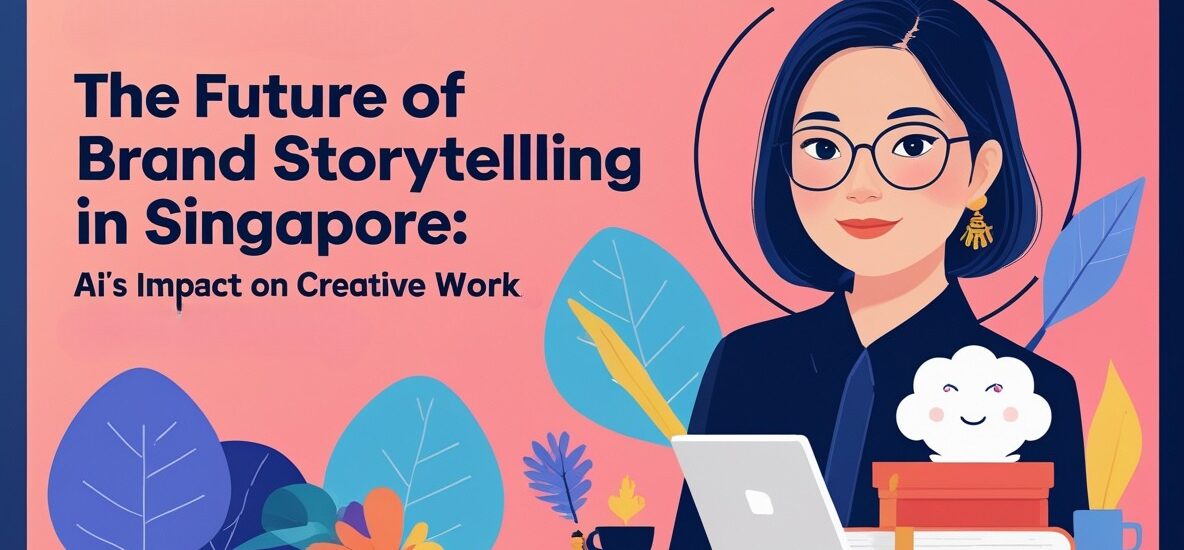Storytelling Enters a New Age in Singapore
For decades, brand storytelling has been the golden thread that binds companies to their audiences in Singapore. Whether it was the iconic TV ads of the early 2000s, heartwarming festive campaigns, or bold digital activations, storytelling has always been about one thing: connection. But connection is changing.
Enter the era of AI Marketing and AI Content Generation. These aren’t just buzzwords — they’re reshaping the very fabric of how stories are told, received, and remembered. Brands in Singapore are waking up to the reality that audiences today expect more than static narratives. They want personalized journeys, interactive touchpoints, and authentic moments that feel tailor-made for them.
The old playbook of storytelling — where brands spoke and audiences listened — is being rewritten. Now, algorithms and insights drive content, guiding what’s created, how it’s distributed, and even predicting audience response. It’s a seismic shift that forces us to ask: does this mean the death of creativity, or its rebirth?
Spoiler: it’s the latter. For creatives in Singapore, AI isn’t a rival; it’s a collaborator that opens doors to uncharted creative territory. And those who learn to wield it will lead the next chapter of storytelling in Asia’s most vibrant brand hub.
Why Storytelling Still Matters in a Noisy Marketplace
Let’s be real: Singapore’s marketplace is crowded. Every brand — from hawker stall startups to multinational giants — is jostling for attention. Yet, despite the noise, storytelling remains the sharpest weapon in the branding arsenal.
Why? Because stories cut through where data alone can’t. They ignite emotion, they stir loyalty, and they shape memory. And in a city where consumers are digitally savvy, discerning, and bombarded with ads every second, only stories with resonance survive.
But here’s the kicker: the rules of storytelling are shifting. Audiences no longer consume content passively. They demand stories that reflect their values, align with their lifestyles, and evolve with their preferences. That’s where AI steps in. With AI Marketing, brands can analyze consumer behavior at scale, anticipate what their audience craves, and deliver narratives that feel not only relevant but deeply persona.
This doesn’t diminish creativity — it supercharges it. Instead of guessing what works, brands can craft sharper, more meaningful narratives that truly resonate. In Singapore, where cultural nuance and speed-to-market matter, this shift isn’t just useful — it’s survival.
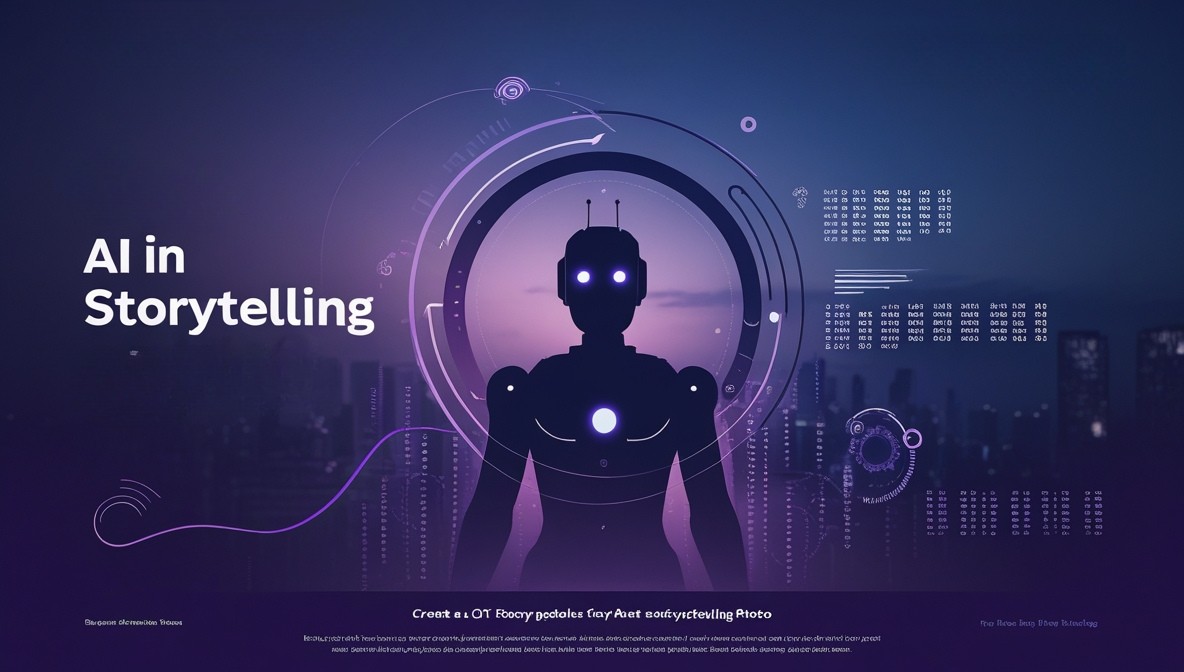
The Rise of AI in Storytelling: From Data to Drama
Think about the best stories you’ve ever heard. They didn’t just inform you — they moved you. That’s the holy grail of brand storytelling. And now, AI is helping brands reach it faster, smarter, and with surgical precision.
At its core, AI Content Generation is about efficiency and relevance Algorithms can process mountains of consumer data, identify trending topics, and even draft campaign assets in seconds. What used to take weeks of brainstorming and production can now be done overnight.
But the real magic lies beyond automation. AI doesn’t just generate content — it uncovers insights that fuel storytelling. For instance, an AI-driven campaign might reveal that Singaporean Gen Z audiences respond better to humorous micro-videos than long-form brand films. Or that certain cultural references spark stronger emotional reactions in different age groups.
Suddenly, creatives aren’t shooting in the dark. They’re equipped with real-time intelligence that helps shape stories with maximum impact. The drama, the emotion, the artistry — that still belongs to the human storyteller. But now, it’s amplified by AI’s precision.
In Singapore, where audiences are tech-savvy and notoriously hard to impress, this combination of data-driven insights and creative brilliance is proving to be a game-changer. Storytelling isn’t being replaced — it’s being reborn.
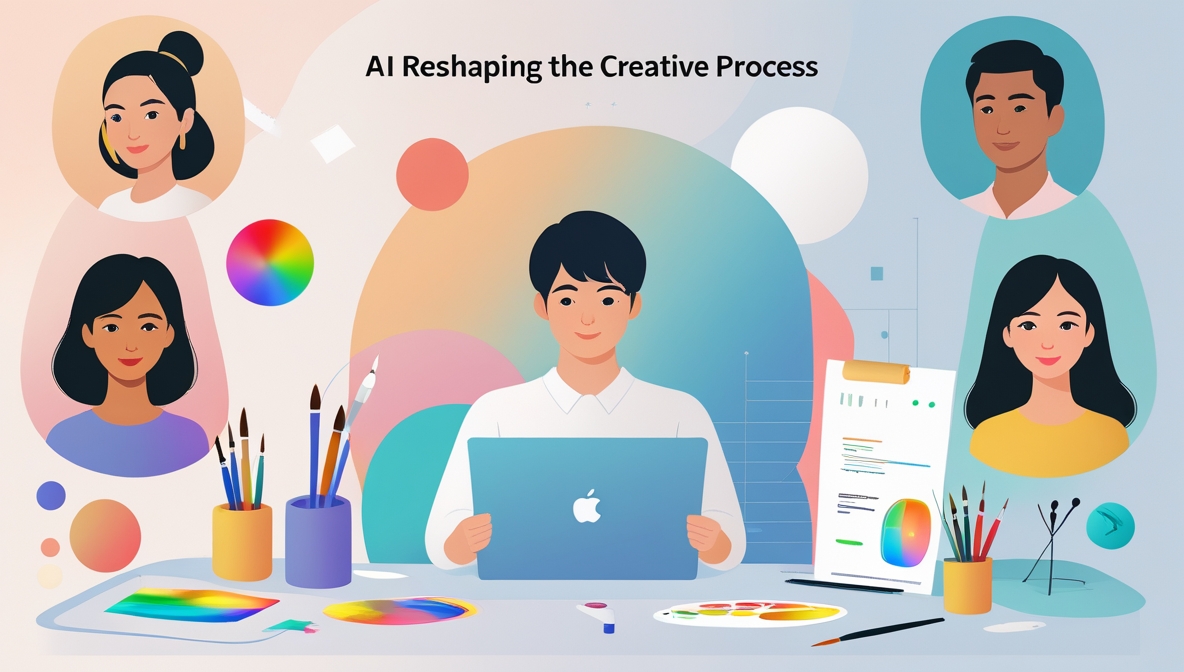
How AI is Reshaping the Creative Process
For creatives, the arrival of AI Marketing tools has been both unsettling and liberating. On one hand, automation now handles tasks that once chewed up hours — scheduling posts, segmenting audiences, generating quick drafts. On the other hand, this frees up space for what creatives do best: shaping narratives that inspire.
With AI Content Generation, the role of the creative shifts from pure execution to strategic storytelling. Instead of spending weeks writing repetitive campaign copy, a creative director in Singapore can focus on weaving brand values, cultural touchpoints, and emotional arcs into a story. The heavy lifting — A/B testing, consumer behavior analysis, keyword optimization — can now run quietly in the background, handled by intelligent systems.
What emerges is a new kind of partnership. AI handles the speed and scale, while human imagination breathes life into the work. This isn’t about replacing storytellers — it’s about giving them sharper tools. For Singapore’s brands competing in a hyper-digital market, that partnership could be the difference between a campaign that’s forgotten in 24 hours and one that sparks real conversation.
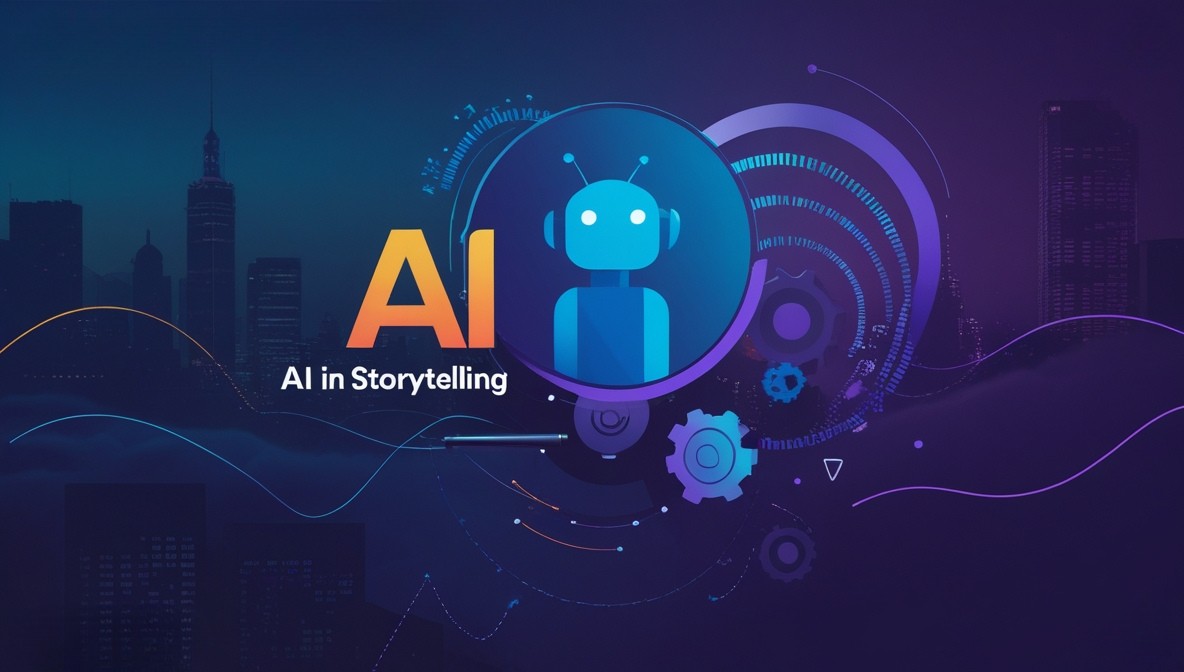
Local Brands Experimenting with AI-Driven Storytelling
Singapore isn’t just catching up with global trends — it’s pushing boundaries. Local brands are already experimenting with AI Marketing to personalize ads, create data-driven campaigns, and predict consumer response with startling accuracy.
For example, fashion retailers are using AI to analyze purchasing data and then tailoring campaigns that speak directly to their customers’ style preferences. Food and beverage brands are experimenting with AI Content Generation to create localized stories for different neighborhoods, tapping into cultural nuances that traditional one-size-fits-all ads often miss).
The results are clear: higher engagement, stronger emotional connection, and measurable ROI. But more importantly, these experiments reveal a future where AI isn’t just a backend tool but a co-creator in brand storytelling.
This is especially powerful in Singapore’s multicultural market, where a brand’s ability to balance personalization with cultural sensitivity can make or break its campaigns. AI, guided by human insight, helps navigate this complexity with precision and flair.
The Ethical Dilemma of AI in Storytelling
As AI Marketing and AI Content Generation take center stage, new questions emerge: how much is too much? When does efficiency become manipulation, and when does personalization cross into intrusion?
For brands in Singapore, authenticity is sacred. Consumers here are sharp, media-savvy, and quick to call out campaigns that feel fake or opportunistic. Over-reliance on AI risks stripping stories of the very human touch that makes them relatable. That’s why the most successful campaigns will be the ones where brands strike a balance — using AI for precision and scale, while relying on human storytellers to infuse emotion, empathy, and nuance.
Ethics also extend into copyright and originality. If AI generates content, who owns it? If algorithms remix past campaigns, does that dilute creativity? These are thorny questions, and the industry must confront them head-on. But one thing is certain: in Singapore’s evolving creative scene, the brands that remain transparent about their AI use will win trust, while those that hide behind machines risk losing credibility.

When Data Meets Imagination: The New Creative Sweet Spot
The magic happens when AI Marketing meets human imagination. Data-driven insights provide the scaffolding, but it’s the storyteller who paints the mural. This synergy allows brands in Singapore to craft campaigns that are both precise and poetic.
Consider a campaign that uses AI Content Generation to tailor messages across multiple platforms — TikTok, Instagram, email — while creatives design the overarching narrative arc. The result is a cohesive, emotionally charged campaign that feels intimate to each consumer, yet consistent with the brand’s identity.
This hybrid approach is the real future of storytelling. It’s no longer about man versus machine; it’s about man with machine. And in Singapore’s competitive market, where speed, nuance, and relatability matter, this balance could be the ultimate competitive edge.
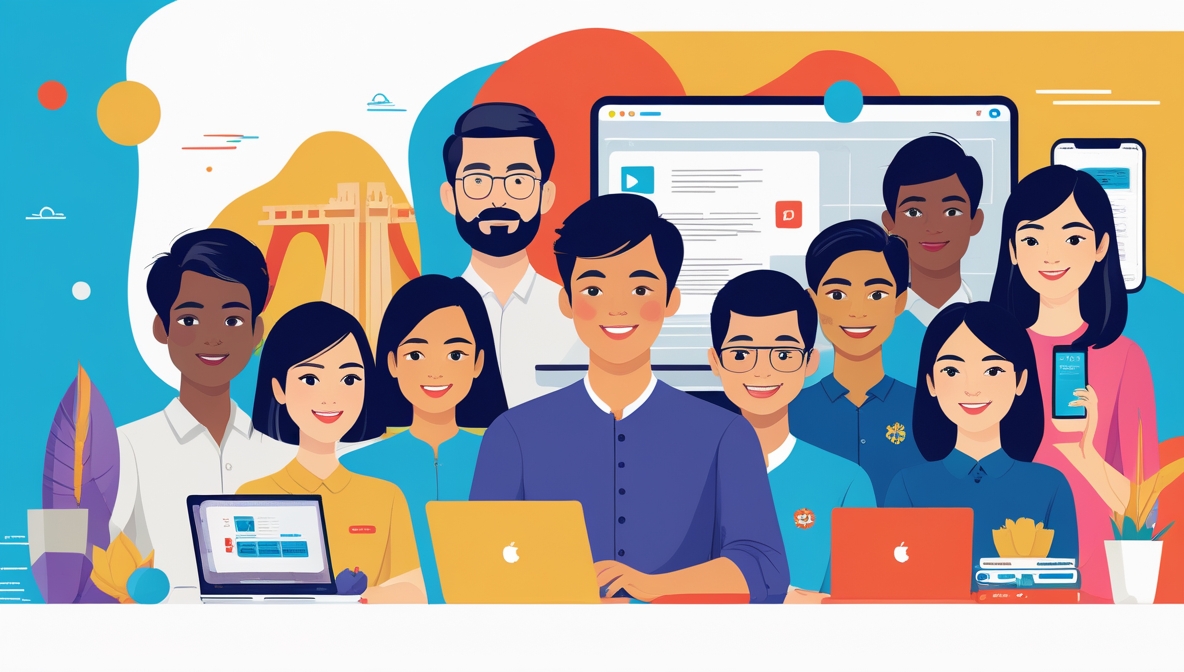
The Future of Brand Storytelling in Singapore
Looking ahead, it’s clear that AI Marketing will continue to play a pivotal role in shaping the stories brands tell. But the role of human creativity won’t disappear — if anything, it will grow even more valuable.
AI Content Generation will handle the grunt work, but it can’t replicate cultural intuition, emotional intelligence, or the subtle humor that Singaporean audiences adore. Those qualities belong to human storytellers.
The brands that thrive in the next decade will be the ones that treat AI as an enabler, not a crutch. They’ll use data to sharpen their narratives, but they’ll rely on creatives to make those stories unforgettable. In short: AI may power the engine, but human imagination still drives the journey.
Conclusion: A Renaissance, Not a Replacement
At first glance, the rise of AI Marketing and AI Content Generation looks like disruption. And it is. But for Singapore’s creatives, it’s also an invitation. An invitation to reimagine what’s possible, to tell stories that cut deeper, move faster, and resonate wider than ever before.
The creative process is not dying — it’s evolving. AI may set the stage, but it’s still the human storyteller who delivers the performance. And in Singapore, a market built on innovation, resilience, and cultural diversity, that combination could spark a new golden age of brand storytelling.
The reboot isn’t about choosing between AI and artistry. It’s about blending them to create narratives that no algorithm could write alone. For those willing to embrace the change, the future of storytelling in Singapore has never looked more exciting.

